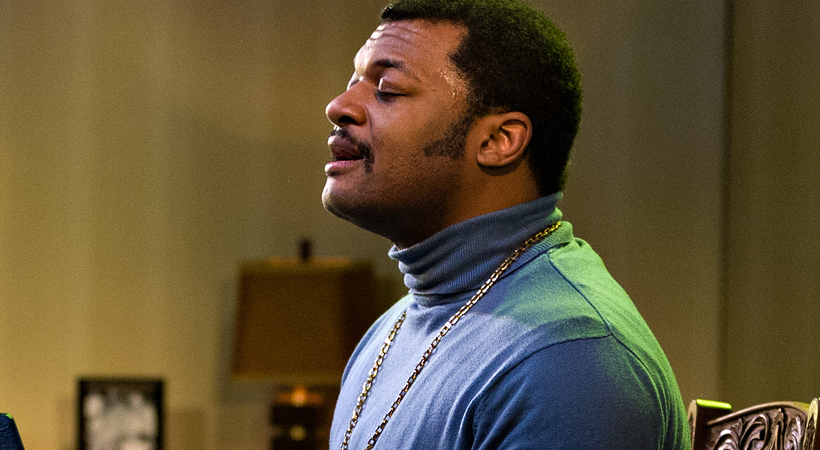
Psychology of a Genius
A Q&A with Twisted Melodies Writer/Performer Kelvin Roston, Jr.
You've been living with Donny Hathaway and this piece for quite a while now—or it's been living with you; how did that start?
About 11 years ago now, I was working at The Black Rep in St. Louis. I'm originally from there, and I'd really gotten started working in theater with them. At that point, I had gone through all their internship opportunities, and was working as the tour manager for their mobile educational shows. We would take scaled-down productions around the city to schools, youth centers, shelters, wherever. But we always needed material, and as part of the opportunity the theater challenged us each to conceive and devise our own one-person show. Something that could fit into that
format, and tour, and be meaningful—have some impact. We called the project "I Stand Alone." And right away, I had this thought of doing something I called "Psychology of a Genius." I wanted something real, and I've always been into music, so I decided to dig into Stevie Wonder, Ray Charles, and Donny Hathaway.
So, what happened to the other two? It turned into "Donny Stands Alone…"
Well, the director of the program, who was a real mentor of mine, said obviously that's too much material to cover in a half-hour piece! So I had to cut and focus, and I ended up choosing Donny to focus on. My mother lives with mental illness, so that's very personal for me, and it's a powerful part of Donny's story of course. I didn't necessarily start out to cover that—it naturally emerged in passing but wasn't the main focus—but obviously it was part of what drew me to the story.
How did that 30-minute short turn into the full Mainstage production we have today?
KELVIN: Fast-forward to 2008. I'd moved to Chicago now, and put it on the shelf. You know, you can have your rap, but move to a new place, a new city, and kind of need to reinvent or reintroduce yourself. So I just kept working, making connections to establish myself. Then I became an Artistic Associate at Congo Square [with Derrick Sanders, director of this production]. They encouraged me to dig out the piece and keep exploring it, both as a writer and a performer. I went on to perform it in public, trying it out and changing it and expanding it along the way.
What was changing, what did that evolution look like?
From the start, I had imagined Donny's last day, last hours, on earth; but I hadn't really focused on mental issues. I followed his career and family and his music and all that, but his mental health wasn't that big a part. And, you know, there's such a taboo around mental illness in America—in Black America, even more so. I guess I was worried or afraid about going into that. But we dove in, and the show and that time with Donny—in his mind and his spirit—really became a safe space for the audience, and me. A place for exploring all the problems and fears and images, and how it actually became part of him and his music, even of his genius.
Then Kwame decided to bring me here and produce the show in Baltimore, and we've kept on exploring and deepening the show, working on the script over the last year. Now it is really a journey inside Donny's mind and heart as well as a look at his musical greatness.
It's been such a blessing. I think we all want a purpose, you know; and in this, I think I have found mine.



